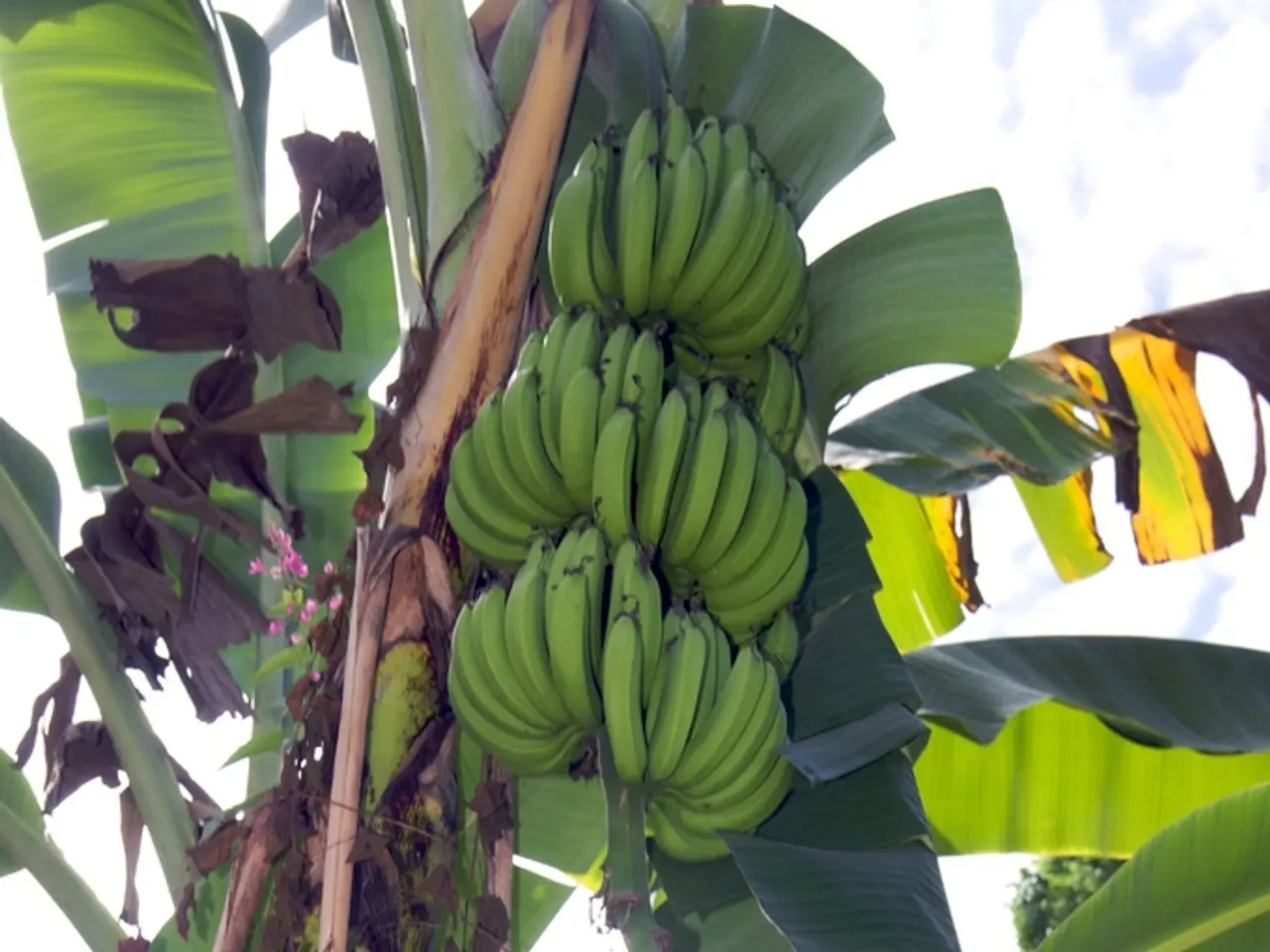Non-vegetarian bananas contain beef fat
In the world of vegan and vegetarian diets, it's crucial to be vigilant when it comes to the food we consume. While bananas, as a fruit, are inherently vegan, there are concerns about agricultural practices related to conventional banana farming that may involve animal-derived products.
To ensure a vegetarian banana, consumers should opt for organic options. Organic bananas are not treated with animal-derived agents, which are often used to protect fruits from pests and extend their shelf life. However, it's important to note that many bananas sold in supermarkets and discount stores are not vegetarian due to these treatments.
The means by which bananas are treated is often not labeled, adding to the uncertainty and confusion for vegans and vegetarians. Similarly, other foods such as fruits and vegetables, wine, bread, roll varieties, chips, and even beer may contain hidden animal ingredients.
Manufacturers use plant protection agents on fruits and vegetables, which may contain animal ingredients such as beef fat or Chitosan derived from shrimp shells. One such example is beer, where some manufacturers use fish bladder, which is not required to be declared.
Figs contain remnants of insects that die during the fruit's growth, another potential concern for vegans and vegetarians. The use of hidden animal ingredients in food can cause uncertainty and confusion, with many vegans and vegetarians uncertain about what they can safely consume due to this revelation.
To avoid such concerns, vegans and vegetarians can look for certified organic bananas, which generally avoid animal-derived pesticides or fertilizers. Fair trade or ethical brands may also provide transparency about farming methods and avoid animal products. "Vegan-certified" labels, if available, are another option.
Growing your own bananas or buying from local markets where you can ask about farming practices is another way to ensure your bananas are vegetarian. When using bananas in recipes, ensure other ingredients are vegan by substituting dairy and eggs with plant-based alternatives as shown in common vegan baking recipes.
In brief, while bananas as a fruit are inherently vegan, vegans may choose organic or ethically sourced options for assurance about farming inputs. When using bananas in recipes, ensure other ingredients are vegan by substituting dairy and eggs with plant-based alternatives as shown in common vegan baking recipes. Being vigilant and checking the ingredients of our food is essential for vegans and vegetarians to make informed choices.
[1] Vegan Banana Recipes: Delicious and Easy Vegan Banana Recipes for Every Meal of the Day. (n.d.). Retrieved November 2, 2022, from https://www.onegreenplanet.org/vegan-food/vegan-banana-recipes/
[2] 30 Vegan Banana Recipes You'll Want to Make Again and Again. (n.d.). Retrieved November 2, 2022, from https://www.peta.org/living/food/vegan-banana-recipes/
- The world of health-and-wellness, including food-and-drink and cooking, often presents challenges for vegans due to hidden animal ingredients.
- While organic options ensure a vegetarian banana, other foods like fruits, vegetables, wine, and beer may contain animal products in their manufacturing process.
- Vegans and vegetarians must be vigilant, reading labels or seeking certified organic, fair trade, or vegan-certified products to avoid animal-derived ingredients.
- Adopting a lifestyle that prioritizes plant-based nutrition and excludes fashion-and-beauty products with animal ingredients further assists vegans and vegetarians in maintaining their health-and-wellness choices.




